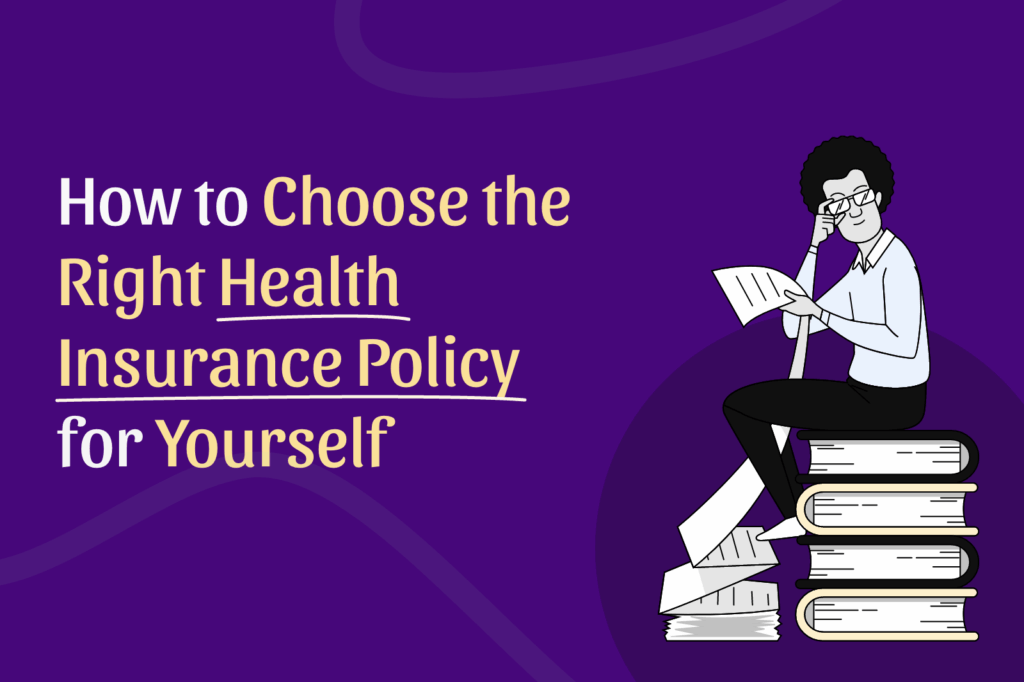In today’s fast-paced world, healthcare expenses are rising rapidly. From routine check-ups to emergency treatments, medical costs can place a significant financial burden on families. Smart health insurance provides a safety net, ensuring that you and your loved ones receive quality medical care without worrying about the financial strain.
Health insurance is more than just a policy—it is a commitment to safeguarding your family’s well-being and securing peace of mind. With modern insurance solutions, obtaining coverage is now hassle-free, flexible, and comprehensive, making it easier than ever to protect your health and your finances.
What is Health Insurance?

Health insurance is a financial plan that covers medical expenses arising from illness, injury, hospitalization, or surgeries. Policyholders pay a regular premium to an insurance provider, who, in turn, agrees to bear part or all of the medical expenses when required.
Key Features of Health Insurance:
- Premium: The amount paid periodically to maintain coverage.
- Coverage: The medical services, hospitalization, and treatments included in the policy.
- Sum Insured: Maximum financial limit covered by the policy.
- Claim: Requesting reimbursement or direct payment to a hospital for covered medical expenses.
With health insurance, unexpected medical emergencies do not translate into financial stress, allowing families to focus on recovery rather than expenses.
Types of Health Insurance
1. Individual Health Insurance
Covers a single person against medical expenses. Ideal for single adults or individuals without dependents.
2. Family Floater Plans
A single policy covers all family members under a common sum insured. Premiums are generally more affordable than separate individual policies.
3. Senior Citizen Health Insurance
Specifically designed for people aged 60 and above. Covers age-related illnesses and hospitalization costs, providing peace of mind in later years.
4. Critical Illness Insurance
Provides a lump-sum payout if diagnosed with a severe illness like cancer, heart attack, or kidney failure. Can be combined with other health plans for comprehensive coverage.
5. Maternity and Newborn Plans
Covers pregnancy, childbirth, and newborn care. Includes pre- and post-natal medical expenses.
6. Top-Up and Super Top-Up Plans
Top-up plans provide additional coverage beyond the base policy once a specific threshold is crossed, ideal for high medical costs.
Benefits of Smart Health Insurance
1. Financial Security
Smart health insurance shields families from high medical bills, ensuring financial stability during emergencies.
2. Access to Quality Healthcare
Policyholders can access top hospitals, specialist treatments, and advanced medical facilities without worrying about immediate expenses.
3. Cashless Hospitalization
Most health insurance providers offer cashless treatment at network hospitals, eliminating the need to pay upfront.
4. Tax Benefits
Premiums paid for health insurance qualify for tax deductions under Section 80D of the Income Tax Act, providing financial relief.
5. Covers Preventive Care
Some modern health insurance plans include preventive check-ups, vaccinations, and wellness programs, helping families maintain good health.
6. Customizable Plans
Policies can be tailored with add-ons or riders for critical illness, maternity, dental, or hospital cash benefits.
7. Peace of Mind
Knowing that medical expenses are covered allows you to focus on health and recovery, reducing stress during medical emergencies.
How to Choose the Right Health Insurance

1. Assess Your Needs
Evaluate family size, medical history, lifestyle, and potential health risks to determine the type and amount of coverage needed.
2. Compare Plans
Compare premiums, sum insured, coverage limits, claim settlement ratios, and additional benefits across different insurance providers.
3. Check Network Hospitals
Ensure the insurance company has a wide network of hospitals that you or your family members may require.
4. Understand Policy Terms
Carefully read inclusions, exclusions, waiting periods, co-pay clauses, and claim processes before finalizing the policy.
5. Opt for Digital and Hassle-Free Options
Many insurance providers offer online policy purchase, renewal, and claim processes, making health insurance more accessible and convenient.
Common Misconceptions About Health Insurance
- Health insurance is expensive: Modern plans offer flexible premiums to fit any budget.
- Only elderly people need health insurance: Everyone, including young adults, should have coverage to handle unforeseen medical emergencies.
- Cashless claims are complicated: Most insurers now provide simple online cashless claim processes.
- Health insurance covers everything: Policies may have exclusions, so it’s essential to understand what is covered.
- Pre-existing conditions are never covered: Many insurers now provide coverage after a waiting period for pre-existing illnesses.
FAQs (Frequently Asked Questions)
1. What is the difference between individual and family floater plans?
Individual plans cover only one person, while family floater plans cover all family members under a single sum insured, offering flexibility and cost efficiency.
2. Can I claim health insurance for pre-existing conditions?
Yes, but most policies require a waiting period of 2–4 years before covering pre-existing conditions.
3. What is cashless hospitalization?
Cashless hospitalization allows policyholders to get treatment at network hospitals without paying upfront. The insurer settles the bill directly with the hospital.
4. Are maternity expenses covered?
Yes, some health insurance plans offer maternity and newborn care coverage, including prenatal and postnatal expenses.
5. Can senior citizens buy health insurance?
Yes, specific senior citizen health insurance policies cater to people aged 60 and above, covering age-related illnesses and hospitalization.
6. How does a critical illness plan work?
Critical illness insurance provides a lump-sum payout upon diagnosis of covered diseases like cancer or heart attack, helping cover treatment costs or loss of income.
7. Are preventive health check-ups included?
Many modern health plans include annual check-ups, vaccinations, and wellness programs to maintain good health.
8. Can I make a claim online?
Yes, most insurers offer digital platforms for submitting claims, tracking status, and receiving reimbursements.
9. What is a top-up plan?
Top-up plans provide additional coverage beyond the base policy after a specified threshold, useful for high medical expenses.
10. Are health insurance premiums tax-deductible?
Yes, under Section 80D, premiums paid for yourself, spouse, children, and parents qualify for tax deductions.
Tips for Hassle-Free Health Insurance
- Review your policy annually to ensure coverage aligns with your current needs.
- Keep medical records and policy documents ready for quick claims.
- Compare multiple health insurance providers to find the best coverage and premium.
- Choose plans with a wide network of hospitals for easy cashless access.
- Understand co-pay clauses and exclusions to avoid surprises during claims.
Also Read: Hassle Free Insurance: Secure Your Future with Confidence
Conclusion
Smart health insurance provides peace of mind by ensuring that you and your family are protected against unexpected medical expenses. It is a critical tool for financial planning, allowing you to access quality healthcare without worrying about the financial burden.
By assessing your needs, comparing plans, and opting for modern, hassle-free insurance solutions, you can secure comprehensive coverage for yourself and your loved ones. Whether it’s for routine check-ups, critical illnesses, or emergency treatments, having a smart health insurance plan ensures that you can focus on what truly matters—your health and the well-being of your family.
Investing in health insurance today is an investment in your future. With the right policy, you can enjoy life with confidence, knowing that you and your loved ones are financially protected in times of need.



